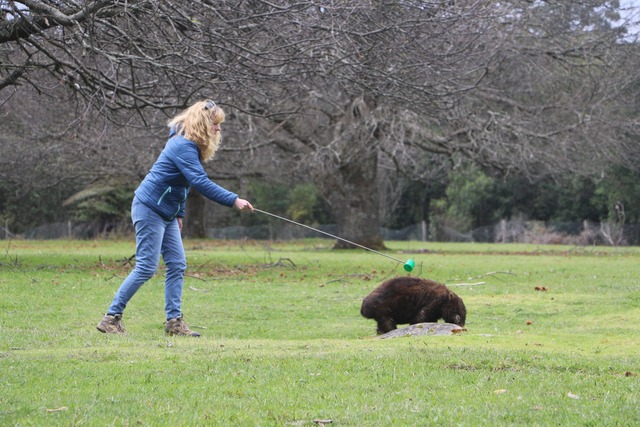By CASEY NEILL
YARRA Ranges Council has welcomed $85,374 to help deal with plant and animal pests along local roads.
Evelyn MP Christine Fyffe last week said the Roadside Weeds and Pests Program (RWPP) cash would help the shire implement a long-term management plan for plant and animal pests on roadsides.
“Once weeds and animal pests – like rabbits – make themselves at home on a roadside, it’s very difficult to stop them from taking over more land,” Mrs Fyffe said.
She said the funding was an investment in the agriculture industry.
Yarra Ranges councillor Samantha Dunn said receiving the funding was terrific.
“Weeds are a problem across the Yarra Ranges and they have a different impact depending on where they are and what they are,” she said.
She said ongoing funding would be even better.
“We’re always happy to have more to deal with the problem,” she said.
“We need an ongoing response to make headway.”
The recent Bailey Report on Roadside Weeds and Pests said local government was best-placed to control weeds and rabbits on local roadsides.
The State Government’s new RWPP is aimed at achieving the Bailey Report’s recommendations. The Yarra Ranges cash boost was part of a $7.8 million, three-year, state-wide program covering 56 councils.
Local Government Minister Jeanette Powell said the funding was divided between the councils “based on the length of the roads they manage”.
Participating councils must use their annual funding allocation to implement an approved Roadside Weed and Rabbit Control Plan, to be submitted before June 2013.
Municipal Association of Victoria (MAV) president Bill McArthur said the funding was good news for rural Victorians, but was less enthused about the allocation process.
“It is puzzling why the government used road length as a proxy for how much each council will receive,” he said.
“The Bailey report recommended equal base funding for each municipality plus a proportional ratio based on the ‘stress level’ of each council.”
Cr McArthur also raised concerns that the State Government funding would not be ongoing, leaving councils – and ultimately ratepayers – with the burden.
He said there was opportunity for reforms to end years of confusion and uncertainty for councils, farmers and communities.
“However, we remain opposed to legislation that could lead to a future shift of costs onto councils,” he said.
Cash targets pests
Digital Editions
-

Kilsyth Probationary driver caught going 176km, along with other high speeding youth over weekend
Purchase this photo from Pic Store: 475151 Police highway patrol have intercepted a number of young drivers over the weekend of 12 and 13 July.…





